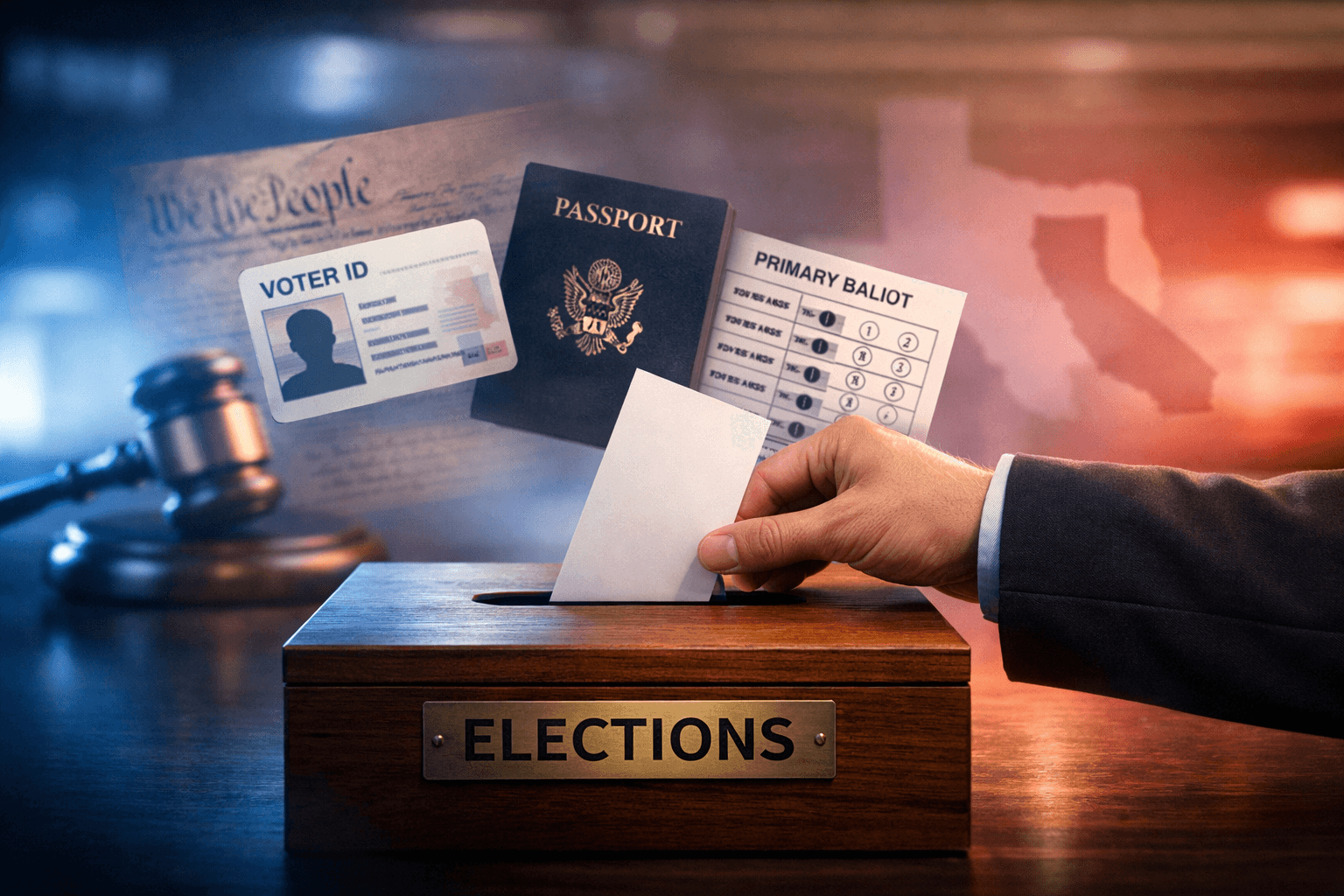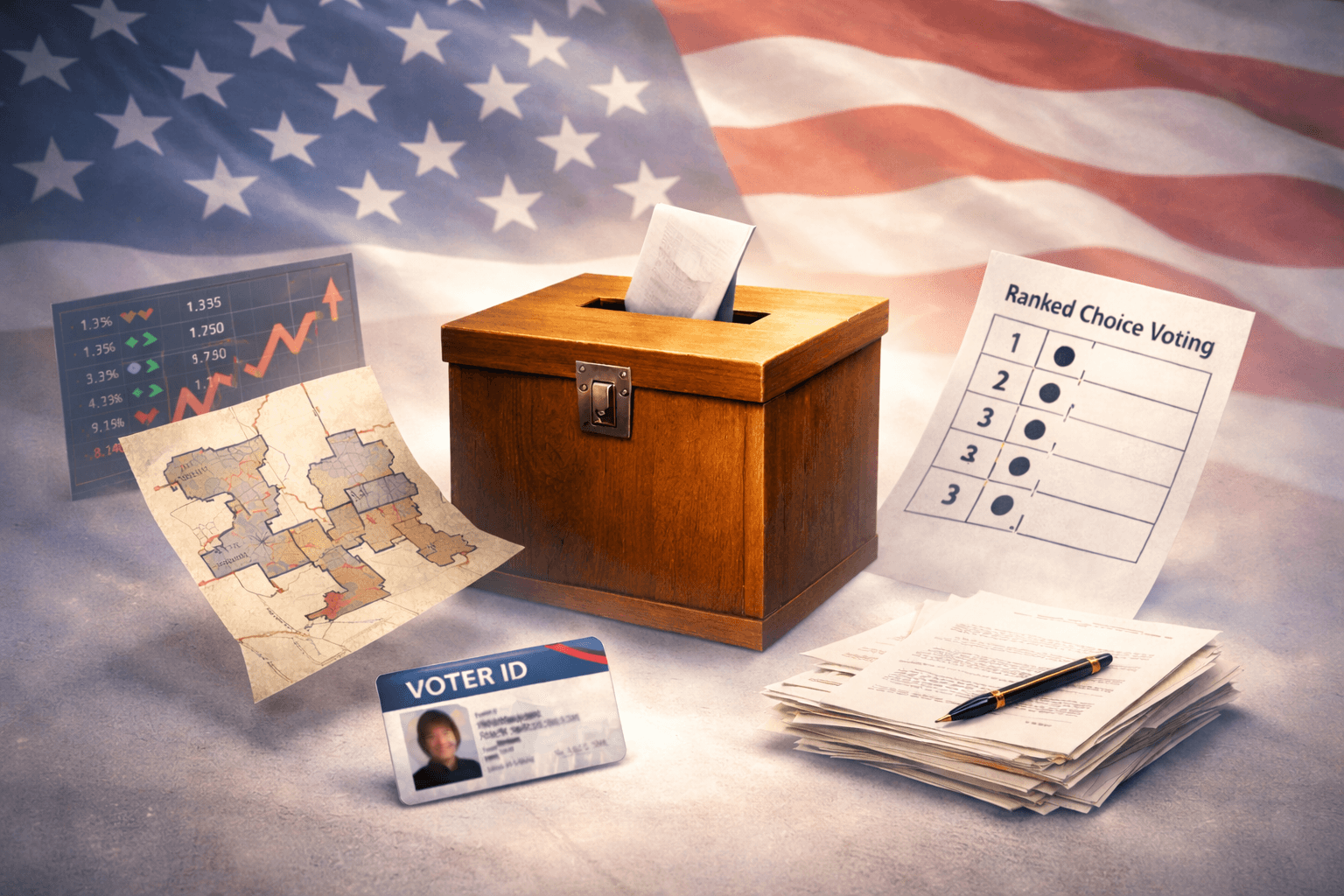Oregon Activist Sues over Closed Primaries: 'I Shouldn't Have to Join a Party to Have a Voice'

CLACKAMAS, ORE. - A new lawsuit filed in Oregon challenges the constitutionality of the state’s closed primary system, which denies the state’s largest registered voting bloc – independent voters – access to taxpayer-funded primary elections. The suit alleges Oregon is denying these voters equal voting rights
The plaintiffs in the case, Mark Porter, a retired attorney and longtime Oregon resident, and the nonprofit Our Primary Voices, argue that the state’s closed primary election rules violate Article II, Section 2 of the Oregon Constitution, which they assert guarantees all qualified citizens a vote in “all elections.”
They further contend that barring independent voters – registered non-affiliated in Oregon – from participating in partisan primaries that often determine the final outcome in politically one-sided districts disenfranchises a large segment of the electorate. As of May 2025, 36.1% of the state’s registered voting population were registered unaffiliated.
This means independent voters are the largest voting bloc in the state, outnumbering registered Democrats (who make up 32.7% of the electorate) and Republicans (at 24.1%). This does not include members of minor parties like the Independent Party of Oregon, whose registered voters also can’t participate in primary elections.
“Voting is very important to me,” said Porter, a non-affiliated voter from Clackamas. “I don’t think I should have to join a political party to have a voice in who represents me in government.”
He emphasized that in many parts of Oregon, the winner of a party primary—particularly in strongly Democratic or Republican districts—is virtually guaranteed to win the general election. It’s a reality that exists in most states in the US, but Oregon is one of only a few states that maintains a closed primary system.
As a result, Porter argues, non-affiliated voters are denied meaningful input in selecting their representatives.
With non-affiliated voters now outnumbering both Democrats and Republicans in the state, Porter and Our Primary Voices assert that Oregon’s closed primary system excludes over 40% of the electorate from critical, publicly funded elections. “If we are paying for elections that elect our representatives, we should be able to vote in those elections.” Porter said.
The lawsuit also highlights how political affiliation can carry social and professional consequences in today’s polarized climate, discouraging some voters—such as business owners, judges, military personnel, and journalists—from registering with a political party.
“Ending closed primary elections in Oregon will hopefully diminish partisanship and minimize the chances of extreme candidates who only represent a small percentage of their party,” Porter added. “I’m not anti-party. Parties have value. But public funds shouldn’t be used for party activities that exclude so many voters.”
With the lawsuit in Oregon, a string of legal challenges to primary election systems that shut out independent voters has emerged across the country in 2025, including in Maryland, where a lawsuit brought by the Open Primaries Education Fund says the state is also violating its own constitution, and a pending suit in Wyoming.
“For decades, the political parties have argued that the primaries are private, members-only elections and as such, they should determine who can and cannot participate,” said Jeremy Gruber, Senior Vice President of Open Primaries. “It’s an increasingly vulnerable legal position, both because primaries are taxpayer-funded public elections and because the rapid growth of independent voters means these elections are excluding voters at historic levels.”
Gruber added that “every successful movement, from civil rights to environmental justice, has used litigation to catalyze change,” which is why his organization has focused on new litigation efforts in the primary reform movement, whether by filing lawsuits in states like Maryland or supporting attorneys in states like Wyoming and Pennsylvania.
He said “Oregon is an important front in that fight."
 Shawn Griffiths
Shawn Griffiths





